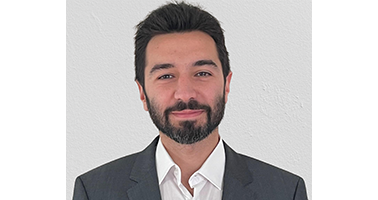
Assistant Professor Physics
Antonios Alvertis is an assistant professor at the Oden Institute and the Department of Physics at UT Austin, with an interest in combining high-performance computing and quantum computing technologies, in order to understand the properties of complex quantum materials. He moved to the USA in 2021, on a joint postdoctoral research fellowship from the Cambridge University and UC Berkeley Physics departments, and then stayed on as a postdoc at Lawrence Berkeley National Lab until August of 2023. During this time, he developed theoretical methods and software packages for accurately describing the excited state properties of diverse solids, and accounting for the effects of temperature on their physics. For this work he received the Theoretical Physics award of the Academy of Athens in December of 2024, and was one of five finalists for the international ‘Volker Heine’ research award in August of 2025. From 2023 to 2025, he was a research scientist at the NASA Ames research center, where he deepened his expertise on quantum computing and its application to materials-related application. He received his Ph.D. in Physics from the University of Cambridge in 2021, where his thesis was awarded the Cavendish Ph.D. prize and the Springer Thesis award, recognizing the contributions of his theoretical work in elucidating the complex photophysics of organic chromophores.
Antonios Alvertis is interested in gaining a deep understanding of the physics that appears in condensed matter, and in building theoretical models that can capture this physics. For these theoretical models to be truly predictive, his work often resorts to harnessing the power of supercomputers and quantum computers, as for realistic materials the interactions of electrons, photons, and vibrating atoms are typically too complicated to allow for a pen-and-paper solution. An important part of Alvertis’ work has been dedicated towards understanding how so-called excited electronic states in solids can be controlled, using external handles such as temperature and pressure, and has resulted in efficient theoretical and computational approaches for accurately obtaining the properties of these states in a wide range of materials. Some of his predictions have led to minimizing energy losses in LEDs, understanding the mechanisms of efficient energy transfer, and predicting how excited electronic states can dissociate into free electrons that may be harnessed in solar cell devices. Moreover, Alvertis has been developing ways of rigorously constructing theoretical models that retain only the essential characteristics of complex materials, yet capture the physics that is relevant to applications, and are also amenable to efficient solution on quantum computers. This could eventually make it possible to understand exotic phases of matter where the interactions between electrons and atomic motion is strong, and which pose a challenge to traditional methods of studying the electronic structure of materials.